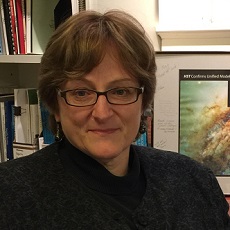Meg Urry - 2018 SPIE Women in Optics Planner
Professor of Physics and Astrophysicist
Yale University, USA
 |
Country of Birth: USA
|
I was lucky not to lose the curiosity all children naturally have as I grew up. I knew from middle school that I wanted to do science. In high school, I fell in love with physics, because I learned we can use mathematics to achieve levels of certainty about the world.
My father who is a chemist, my mother who is a zoologist, and my high school chemistry teacher, Miss Crawley inspired me to work in science. I teach physics to undergraduate and graduate students as well as mentor students and postdocs. My research is on the growth of supermassive black holes over the past 12 billion years and I study the properties of relativistic jets emanating from the centers of some (rare) galaxies.
When I was a student, I was so grateful just to hear the name of a woman scientist, much less meet one. Now we have SPIE calendars full of interesting women! On balance, I guess sexism was my biggest obstacle in that women are treated differently than men, often unconsciously, such that they are underestimated and overlooked. On average, I saw men being given more opportunities, more credit, and more rewards. This situation is changing but still too slowly.
I would have liked to have some practical tools for dealing with gender-biased treatment. I had always been told that as a woman, my career path would be easy because of all the affirmative action-induced benefits accruing preferentially to women. In fact, the opposite was true. So I interpreted my slow career progress as a failure on my part. Not until I read Virginia Valian's Why So Slow? The Advancement of Women did I realize the preferences actually go to (white) men.
I have worked for decades to increase the participation of "women in STEM" but I was slower to learn that gender isn't binary or fixed for that matter. There are also many categories of disadvantage in the present STEM enterprise, and those ticking off multiple categories are multiply disadvantaged.
So I say, go for it. Do the thing you love. No one should be able to keep you from that. Nor should worries about raising a family stop you from going into STEM. Indeed, it's much easier to raise a family while a professor than in most jobs.